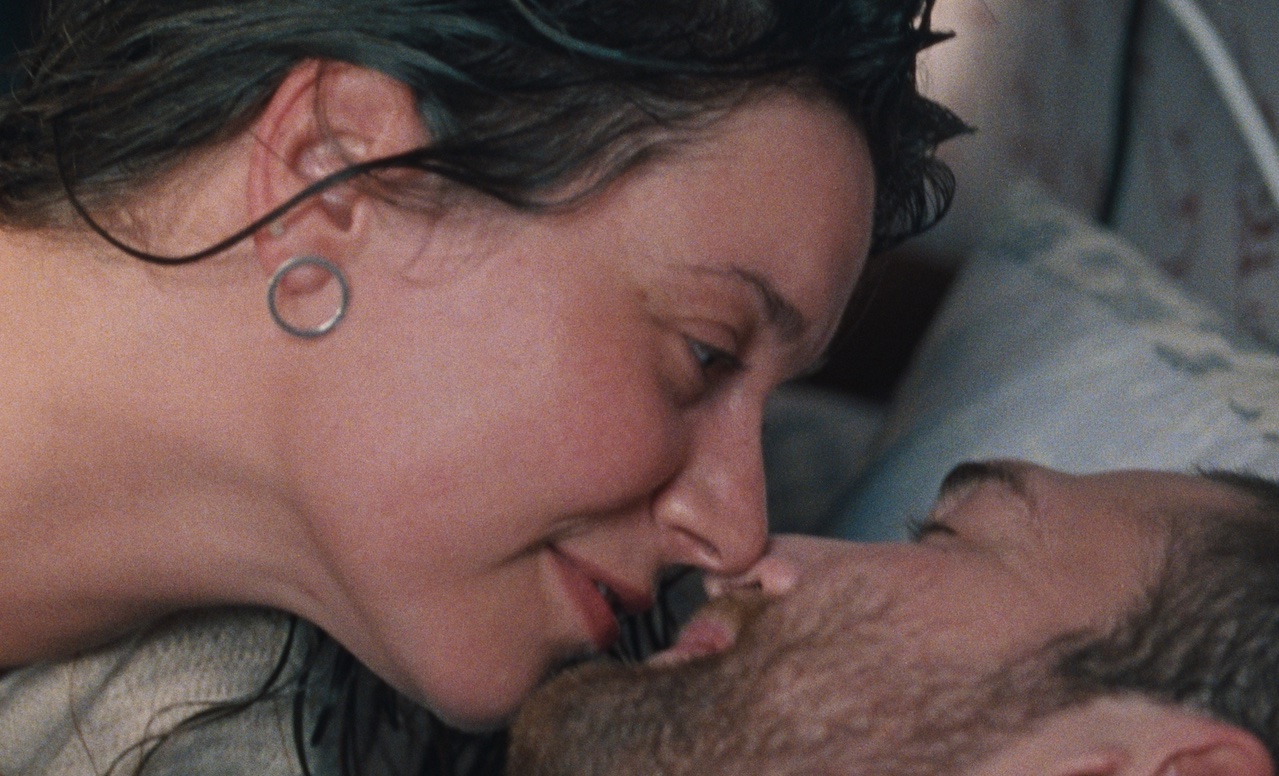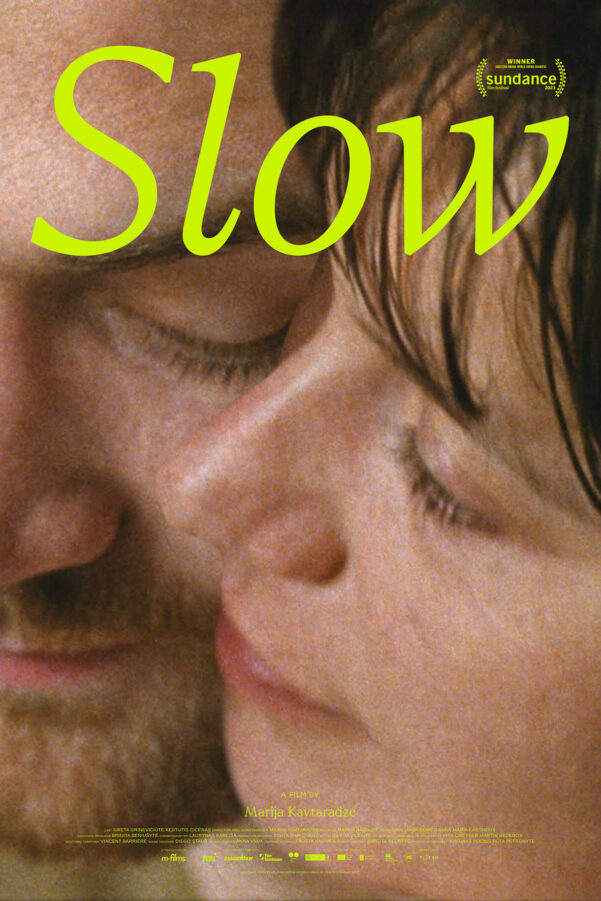Slow

Just like its title, Marija Kavtaradze’s Slow is a slow and simmering love story between dancer Elena (Greta Grinevičiūtė) and sign language interpreter Dovydas (Kęstutis Cicėnas). Elena is free-spirited, with a casual approach to love and sex, and is not looking for any long-lasting commitments. All of this changes when she meets Dovydas who wants something more meaningful, especially due to his asexuality. The film touches on the struggles and clashes between the two as they try to build a relationship around their very different sexual preferences and experiences. The Lithuanian picture explores different types of romantic dynamics, from exclusivity and monogamy, to arranged sexual agreements. It’s very sensual, with lots of unhurried camera work that lingers on specific body parts, from the hands and feet to any exposed skin to the eyes. This is especially prominent in scenes of Elena dancing as a visual representation of her open and expressive sexual nature.
There’s a physical intimacy between Elena and Dovydas that’s chaste and understanding. The feature highlights the everyday domestic side of their exchanges with witty banter, intimate conversations about childhood experiences, and the simplicity of just lying in bed next to one another feeling closeness. To some, this might strike as mundane, but it’s the build-up of these little moments that makes their dynamic so fascinating to follow. Viewers will begin to question when the quiet consideration both have for each other will break: how long can this tender and fragile thing they’ve built endure their differences, their specific needs and wants, and their contrasting views of pleasure and intimacy with other people? The cinematography aids in drumming up this anxiety with shaky camera movements, a rhythmic soundtrack and a score that creates a sense of steady anticipation.
However, Slow’s tackling of Dovydas’ asexuality is somewhat lacking outside of the love story. While there’s an understanding of the trial and error involved in finding the self, and the very nuanced part sexuality plays in that, the main protagonist is Elena. Therefore, her limited perspective on the topic is what the viewers end up with. Although she is herself an intriguing character, with a genuinely noteworthy story to tell, in order for asexuality to be the main conflict of a romantic film, more context needs to be provided specifically for that character. Otherwise, asexuality becomes an accessory rather than an essential part of a character’s journey.
That said, there’s a brilliant line at the end that encompasses what Slow has to offer: “I love you but what good is that? I can’t be the person you need.” It’s this back-and-forth between the two – their sacrificial love for each other – that’s so interesting and will hold the audience’s attention, despite the steady and quiet pacing.
Mae Trumata
Slow is released in UK cinemas on 24th May 2024.
Watch the trailer for Slow here:



























Facebook
Twitter
Instagram
YouTube
RSS